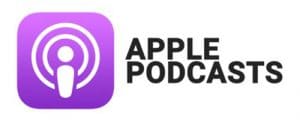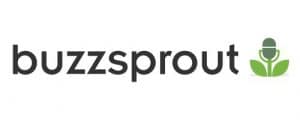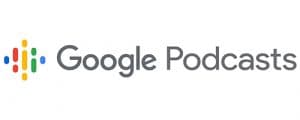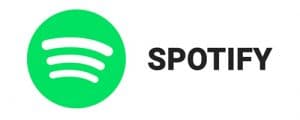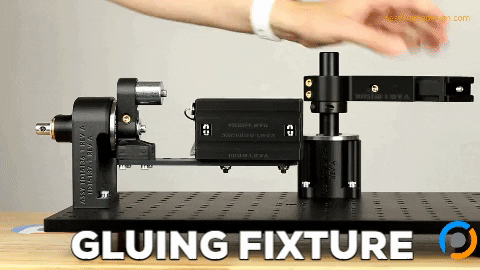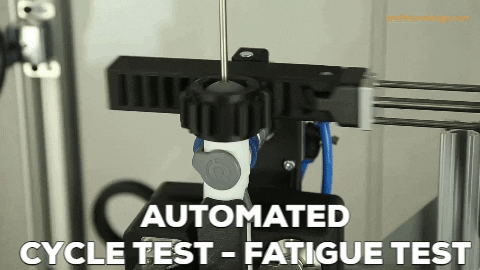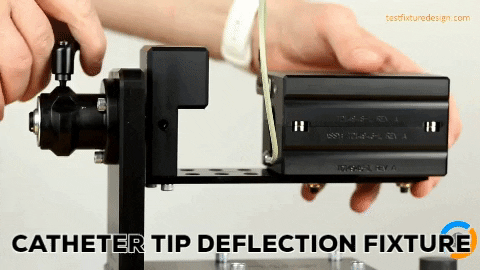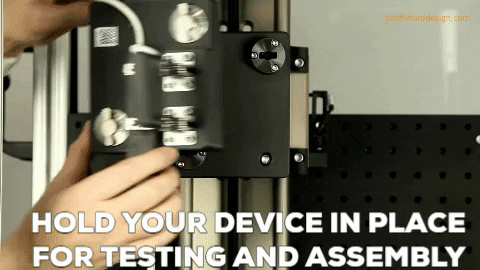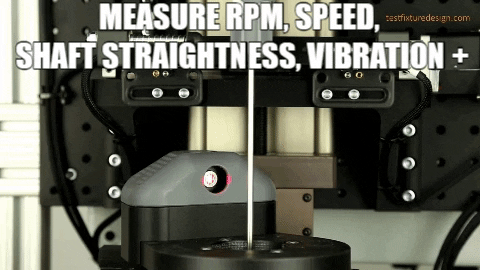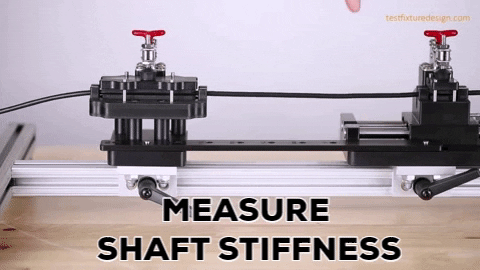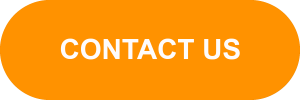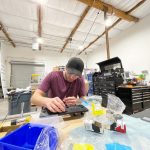Mac Fortune | The Ideal Role for An Engineer That Loves Entrepreneurialism, Technology, & Business

Who is Mac Fortune?
Mac Fortune holds a bachelor’s degree in engineering management with an emphasis on mechanical engineering. He has grown a successful career in the medical device industry with focuses on medical imaging, orthopaedic trauma and artificial intelligence. He also has experience building, training, and managing sales teams and managing product portfolios.
In this episode learn about the role Mac holds in which he gets to combine entrepreneurialism, technology, and business, and how you can find a similar role if your interests align with these fields.
https://orthogrid.com/
Aaron Moncur, host
EXPAND TO VIEW EPISODE TRANSCRIPTION
Presenter 00:00
Hi everyone, we’ve set up this being an engineer podcast as an industry knowledge repository, if you will, we hope it’ll be a tool where engineers can learn about and connect with other companies, technologies, people, resources and opportunities. So make some connections and enjoy the show.
Mac Fortune 00:18
I’ve always wanted to face my fears. And Toastmasters has been an incredible opportunity for me because it truly does require you to get up in front of people, and speak.
Aaron Moncur 00:43
Hello, and welcome to another episode of The being an engineer Podcast. Today we’re speaking with Mac Fortune, who holds a bachelor’s degree in engineering management with an emphasis on Mechanical Engineering. Mac has grown a successful career in the medical device industry with focuses on medical imaging, orthopedic trauma and artificial intelligence. He also has experience building training and managing sales teams and managing product portfolios. Mac, thank you so much for being on the show today.
Mac Fortune 01:15
Aaron, thank you so much for having me. Looking forward to this conversation.
Aaron Moncur 01:18
All right. So back in your college days, when you had to decide what major to sign up for what made you choose engineering?
Mac Fortune 01:28
Well, I’m sure like many of the engineers I listen to this podcast was always very hands on Legos as a kid love to just build things. Obviously, that’s the mechanical side, I have tried to dabble with electrical wiring and things like that, but usually electrically myself. So realize that more than mechanical construction, building, understanding the different materials and how they fit together at a very young age, as you know, college, middle school, high school, I leading it to college, I should say, I just knew that engineering really was where my mind was, wasn’t very successful in English always had more of a struggle writing papers when they had minimum word counts and things like that. When it came to math and the creativity, construction side of things, I was always very successful. So going into college, I felt engineering as well would be a great degree to have to separate myself from others may be in the field as well. Many of my friends were in business, communications, things like that thought many of those skills you could learn. When you went out into the field, were really setting yourself up to have more of a technical background in the world that we live in these days, I thought it would really help suffering me as I started to look for jobs. Oh,
Aaron Moncur 02:53
that’s a really good insight, a lot of the skills you can learn on the job, but engineering is that would be a tough one to learn on the job. Yeah. Very cool. All right. Well, your last few roles have been as a product manager. I don’t think that we’ve had anyone on the show today. It’s been 185 or so episodes, and I don’t think we’ve ever had a product manager. So I’ve been excited to talk to you about what that is. And what you do. Can you just tell us a little bit about what a product manager does?
Mac Fortune 03:23
So a product manager, it’s interesting, I’ve been asked what a product manager does from the number of people. And I think it could Ryan, you could vary quite a bit based on the size of the company. A larger company has downstream upstream product managers, project managers, that can be separated into many different areas where I’ve always worked with smaller companies. So as a product manager with a smaller company, a lot of that is downstream marketing, figured out pricing strategies, the content and the marketing material, delivering the education to the sales representatives, creating relationships with key opinion leaders, really understanding the voice of the customer as well. Then, upstream marketing as well, would be long term, the business plan of a product or new product development. So product managers, really they’re very closely involved in the marketing department. But their expertise comes into play with the products that need to be the product expert. They want to be the person where others in the field go to them when they have you know, questions about how the product works, or they want to be the person that takes the feedback from the voice of the customer to figure out okay, rd. And these are new features, functions that we need to look into. Where you get that feedback, you analyze it with medical device, especially in Europe now. It’s actually a mandate that quarterly, you gather as significant amount of data, you analyze that. So that way you could show to regulatory bodies that you understand what the market wants, you understand what your customers are saying, what they like, what they don’t like, etc, where that product manager really needs to be that individual that is communicating with the field, knowing what people like, along with internally, with r&d, to be able to transfer that information of, let’s prioritize this feature this function, or let’s deprioritize that one, because, you know, it’s really not being asked for as much as we originally thought.
Aaron Moncur 05:36
That’s cool. So it’s, it’s sounds like very much a business kind of role. It sounds like a perfect role for someone who has that entrepreneurial spirit, maybe, for whatever reason, doesn’t quite want to go out and hit his on his own or her own, but wants to exercise that entrepreneurial spirit. And I know that you will talk about that a little bit later as well. But it sounds like a perfect fit for you based on what I know of your background,
Mac Fortune 06:03
yet, appreciate that. And, you know, another key part is communication. A product manager, communication is one of the key things, I think that could relate to a project manager as well. But a product manager needs to be able to communicate between multiple departments and accompany frequently, there could be interdepartmental walls, where sales just sends a email over to r&d expecting something get done in a week or two, where rd says, you know, no, we’ve got all these other projects, all these other priorities, and you don’t understand the man hours, etc, where That’s where that product manager can come and play, communicate with sales, communicate with r&d, to help everybody work a little bit more closely together to be aligned to hit long term goals. Because, again, r&d sales may not understand the regulatory implications as well. So that’s where product manager has to really be able to communicate with multiple different departments understand the way they think it’s allowed things to come together, a new product to be, you know, sent to market new upgrades, changes to a product to be released much more efficiently. And for those to be prioritized as well, based on the input of these different departments. Because they all work differently, they all think very differently as well.
Aaron Moncur 07:31
You know, we’ve been looking for a marketing engineer recently here at pipeline, and have not had many hits on on that job posting. And now I’m wondering, maybe I should put an ad out for a product manager, even though what I want them to do is not manage a specific product, but it just, it sounds like a product managers set of skills is exactly what I’m looking for. And maybe that term is a little bit better understood out there versus a Marketing Engineer, which I hadn’t really heard of before. So maybe a lot of people see that. And they’re like, I don’t know what that is.
Mac Fortune 08:03
Yeah, no, I think that could be a good strategy, especially working with the right individual that has worked with a smaller company, because I think that really, again, sets people apart. Because you have to wear multiple different hats, you have to be, you know, quick to adapt, pivot, as they say, based on a change from executive management. And based on the change in the field, where a product manager, you are marketing, but you have a little bit of product expertise. I think a lot of product managers have a technical background. And that may not be the majority, but a good amount of them do. So think in your shoes. Yeah, Marketing Engineer, that is a unique term, where a product manager, maybe a better better fit for you.
Aaron Moncur 08:49
Yeah, yeah, amen. Okay, well, one of the great things about this podcast is we get to learn about all the different kinds of jobs that an engineer can perform. And to be honest, before I started the podcast, I don’t think I fully appreciated how many different roles an individual with an engineering degree can can hop into and perform effectively. How did your engineering degree prepare you to be a product manager?
Mac Fortune 09:16
So it’s interesting when I graduated from college, with an engineering degree, I think is more my entrepreneurial background. I never wanted to follow your typical path of an engineer. I wanted to look at what other opportunities were out there. I’ve always wanted as you said earlier on to be an entrepreneur, I found a few ventures down that road. But nonetheless, when I started looking for jobs, I found a smaller company, a startup and I thought is a great fit. Because again, as I’ve said, I love working with smaller companies. It allowed me to really work closely with r&d, leverage a bit of my technical background, but that gave me that opportunity to continue to learn as as the company grew, to take on new roles as well, as the company changed, I went in as a sales representative then became a trainer for independence, I then became more of a sales type manager slash product manager, because the product was evolving very quickly, I was working with the different key opinion leaders, obtaining the voice of the customer bringing that information then. So I loved having that technical background. But then it gave me that opportunity to work with small company really take on a lot of different roles. And just I love that opportunity of continually learning. I don’t think I’d ever do very well with a larger company, because frequently you get stuck in a box. That’s all you do. And if you need to do anything else, you go talk to that person where I think it could stifle somebody’s development growth, both career wise, along with just pure mental growth and advancement.
Aaron Moncur 11:03
Yeah, I was thinking just a week or two ago, about the end of my college career, and I had an interview with this company, I think it was an engineering position for designing automotive wire harnesses. And I wasn’t super interested in the job. But it was the first opportunity I’d had to even interview with anyone. And so I thought, you know, I’ll take it, and maybe I’ll learn something. And who knows, maybe I’ll be surprised, and it’ll be super exciting or whatever. Anyway, I flew out there it was, it was in like, I don’t know, where it was it Omaha or were Idaho or somewhere out kind of in the middle of the boondocks. And it was not an interesting job. And I didn’t give it that much thought. But what I was thinking about this just the other week, I thought, Now what if I had taken that job? What if I had actually wanted to do that, and I tried it out and being young and naive, and not really realizing how how jobs can set a trajectory for the rest of your career, I would have been miserable. You know, it was this like big corporation, and I would have been stuck in a box. Just designing wire harnesses, everyday, no offense out there to any of those who are designing wire harnesses for a living. There’s something for everyone, I guess, but that that would not have not been for me. I love being able to wear all these different hats and work in a small company. So you talked about this entrepreneurial spirit that you have, and you’ve done a few things, can you share a little bit about some of your entrepreneurial endeavors, and how your degree in engineering prepared you for those. So as
Mac Fortune 12:43
I said, very early on, I loved building, creating, constructing, I started a company and this was to support another entrepreneurial venture. But the company I started was fortunate professional services. I thought that fit pretty well. The timing was perfect, though, because this was when plasma TVs LCT LCD TVs were hitting the market. Everybody wanted one they didn’t understand the differences. They wanted it mounted on the wall 5.1 6.1 7.1 Surround Sound universal remotes. So they saw this opportunity. A lot of my friends at that point were in real estate, they were doing pretty well. So of course I could go to them and started growing a bit of a following How to profitable company moving forward, I was running the electrical hiding the wires going into attics and I have still have my wife always wonders what they’re for but the push rods where he could tape electrical wire, speaker wire, run that through drywall, and do full surround sound mounting TVs on the wall wiring it up to amplifiers, receivers. So if you want a multi room stereo as well. And then of course your universal remote, that is usually a continual thing because you have to update them or there’s questions from customers when things change. But that was the perfect company because I was trying to start another company by the name of thermal impression. And basically all that is is a thermal chromic ink heat sensitive ink. And I created this for marketing. Also, I thought there could be a janitorial benefit, where marketing wise first of all cold beer, you may have seen Coors Light in the Blue Mountains. I was trying to get a pound I can’t say I taught them or introduced that to them or not. But nonetheless, this was something I was trying to do beforehand. But label that he come on a pizza box. So when the pizza delivers to your door, you can see something it dynamically shows that this is a hot pizza. However pizza or Pizza Hut or Dominos wanted to market that but nonetheless is Dynamic is changing and is saying something that it’s a hot pizza, a good action change to another message where maybe when something upon, you know, the message cooling down. So really made a push on that majority of the money was spent for legal, trying to get a patent. And unfortunately, was not successful there. But, again, just that opportunity of taking on multiple different hats, understanding business plans are a wise, submitting for pounds is a wonderful experience. And fortunately, I had the income on the side to be able to support that and obviously to support myself.
Aaron Moncur 15:40
Yeah, that’s, that’s great. I mean, this leads into the next question I have, which is, when you started out, you you were doing sales. I mean, I think right out of college, your first job was getting sales, probably tactical sales. How did you even know how to do sales right out of school?
Mac Fortune 15:55
You know, I think, like we talked about our I mentioned, and you did smart as well. But when it comes to business, certain activities, you could pick it up as you go. And maybe there’s personalities involved. Obviously, when it comes to a sales individual, compared to somebody that’s not really as outgoing. You know, one thing on a side note, just speaking of, you know, being outgoing or comfort is actually Toastmasters on the side. Because we all maybe have a little bit of hesitancy or discomfort when it comes to speaking in public, where I’ve always wanted to face my fears. And Toastmasters has been an incredible opportunity for me, because it truly does require you to get up in front of people and speak. And then there’s evaluations that are done afterwards. But going back to your question, I think, just the excitement of working with a product and getting out in the field. And the companies I’ve worked with have required me to get out into the field work in the operating room. I do come from two generations of physicians. So my grandfather and my father, were both physicians, I think they’re very happy, I didn’t go down that road, given our current health care system. Obviously, that’s a much different conversation. But I’ve always been very interested in health care, medical device type products, and just sort of grabbing the reins jumping in getting with company and getting thrown out in the field and just sort of sink or swim. As this with sales fortune, I was able to really pick up on the product, separate myself because I had that technical background and technical understanding that I think many other individual sales reps, as soon as the physician or somebody starts asking more of a technical question. And that sales rep says, Oh, let me get back to you. You know, I was able to answer that question, I was able to have more success and create a stronger relationship, which really paid off with growing sales and my relationship with company.
Aaron Moncur 18:04
I think everyone should have a job in sales at some point, right? You just fake it till you make it, I guess, to some extent, but you learn some skills there that you’ll use your entire life. I mean, we’re all selling something at some point, no matter what what job you have, and being able to talk to people and communicate value about a proposition. It’s so beneficial. Well, let me take a very short break here and share with everyone that Teampipeline.us is where you can learn more about how we help medical device and other product engineering or manufacturing teams develop turnkey equipment, custom fixtures and automated machines to characterize inspect, assemble, manufacture, and perform verification testing on your devices. Today, we’re speaking with Mac Fortune, and you currently Mac work for a company called OrthoGrid Systems. What can you tell us about their technology?
Mac Fortune 19:01
So it was a dream of mine not too many years ago, where I was in plates and screws, I was selling medical device trauma products rolled into imaging. So CRMs horoscopes, I basically could call it an x ray device. But I saw the way healthcare was going where robotics, augmented reality artificial intelligence, these new technologies were really on the cutting edge, nothing against plates and screws and trauma, but the innovation is just being stifled. There I felt were contracts. The healthcare system being consolidated doctors not really having the power to ask for more innovative products. But money was being invested in robotics, artificial intelligence, augmented reality. So reach out to this company named Arthur grid end of last year, and fortunately just talked with them working with them, expressing my strong desire and a skill set that I had as a Let’s start with ortho grid a few months ago. And the core product of our ortho grid is artificial intelligence as technology that’s used for a total hit. Now, people that maybe aren’t as familiar with the total hip is basically a ball and socket joint. Now, when you go in to have a total hip performed, they cut off the ball, your femoral head, and then the acetabulum, which is the cup that the femoral head fits in, they actually ream out to take out the cartilage that may have been diseased. Now, that’s pretty straightforward. But the problem is the cup that you just reamed out, if you go too deep, if the angles are wrong, the femoral head, depending on how that is removed, you could change a patient’s leg length, you could change the hip offset. Obviously, this has been a major complaint after surgery for many years. Because if you don’t put the components in correctly, well, now one patient’s leg is little shorter than the other, obviously could have imagined discomfort, the discomfort there. And for years, it’s hard to believe, but it was really just eyeballing how these fit together. Or there’ll be multiple X rays that are taken. And you’d have the preoperative X ray. And then x ray, intra operative, where you put them on top of each other, line them up, see, okay, is this one right? Is it not? Right? As you can imagine, the accuracy of that method was not very good, where with the artificial intelligence platform we have, with a intraoperative X ray, our artificial intelligence can pick up, you know, autonomously without a sales representative or RadTech, on key anatomical landmarks on your hip, and then of your femur as well. So as you go through surgery, and the doctor puts in the trial cup, into your head, our artificial intelligence, again, autonomously, without any kind of user interaction, will see that there’s a cup being implanted, and it will tell the doctor what the inclination is with the version as well is, and then it can register the femur where they call the lesser trochanter. Compare that to the non operative side, it very quickly could tell you if there’s any leg length discrepancies. Last part is this system plugs right into existing hospital equipment, a CRM, and it’ll give the doctor very clear numbers, angles that they’ve not had before. And it’s not as if they’re having to interact with it, they’re not having to go to another individual in the operating room to set this up. It’s really giving them information for them to have more accurate, more efficient outcome for their patients.
Aaron Moncur 22:48
That’s amazing. It almost feels archaic to do it without that kind of technology.
Mac Fortune 22:53
Yeah, I mean, that’s where robotics and all these new technologies come into play. But as you said, and I truly believe in my lifetime, X ray, or RAD Tech’s may not be around as much where why not have a computer, artificial intelligence, deep learning, these are continually learning and improving programs, where the more data you give it, the more accurate it can become, when no offense to radiologists that they have their training, they’ve done their fellowship, and they read, you know, a certain amount of X rays, well, there could be some subjective differences there compared to artificial intelligence where it could take input and data from all over the world, and can continually improve and evolve. Yeah, it’s the way the world is changing. Obviously, I’m in the health care area. But it is fascinating to think about, you know, the impact that artificial intelligence that is going to have with patient outcomes and visits and things like that.
Aaron Moncur 23:57
So you are a product manager there and and obviously, you know, the product very well, as you’ve been explaining here. What are some things that a a product manager sees, or experiences or observes that the engineering team may not fully appreciate? But that they really should know about it? Have you seen any, like trends or patterns during your career?
Mac Fortune 24:23
You know, I think this is an area where there’s an incredible weakness, because the product manager does get out in the field. I was in the operating room for two days up in Utah a couple of weeks ago, where I’m seeing how the product works. I’m hearing what the customers say, I’m hearing the bed, you know, the good, the bad, etc. Where the r&d team, they’re the one that is creating the products, but they may be I would say high majority the time don’t see it being used. Obviously in healthcare, there’s a lot of red tape when it comes to regulatory van their credentialing to get into the operating room. But I think an incredible weakness in my experience has been that the r&d team is not seeing how it works. They’re only taking the input from sales from product managers to build something where smaller company, luckily, a PhD on an r&d team is going into the operating room. But I’d say that is very infrequent. Where that is being done where I think, yeah, that should be a change when it comes to many companies, especially healthcare that the people building the product should see it being you should hear from the customer. And not always rely on input from sales or a product manager.
Aaron Moncur 25:43
Yeah, big time. And it’s amazing how easy it is for that not to happen, right? Yeah. Well, let’s see, I’ve got maybe a few kind of general questions for you and your experience, what are the top one or two things that you’ve seen slow down the speed of engineering?
Mac Fortune 26:03
Obviously, in healthcare, regulatory, is a big part with anything we do. We there’s tons of red tape, we have to be very careful on claims that we make. So I think that’s a big part of it. And then unfortunately, yeah, just the not to speak so poorly on our healthcare system, but reimbursement and just the overall business environment of health care. Innovation is being stifled where the rd department, the creation and innovation they’re wanting to do is being stifled because the money may not be there in healthcare, where they’re looking at spending money on other things that you create a longer term contract with the hospital, Surgery Center, etc, on a commodity type product compared to selling innovation. So I see. It is sad to think about, but I could just see some of the engineering team some of that development, innovation being stifled because it’s more business decisions. frequently compared to the innovation. They’re looking at purely the numbers and ways of saving money for some of our customers compared to offering innovative products, should that physicians and be patient.
Aaron Moncur 27:18
And you’re saying that the business decisions may not always correlate with what’s best for the patient?
Mac Fortune 27:24
At times, yes. Because physicians now are employees of the healthcare system. They’re not, you know, private practice anymore, where it’s about who has the contracts, is that the big one of the big five orthopedic companies as a contract with banner on our health? Well, this is what you’re using? Because we’ve got a hate Yeah. Yeah, compared to the doctor saying, Look, this is the cutting edge technology, it offers this unique construct. I really think this is a patient that needs this technology. A lot of the time, they don’t have the will to fight that fight. Because it’s just it is a fight when it comes to reimbursement from insurance when it comes to just the hospital contracts that they have have in place. Yeah.
Aaron Moncur 28:11
Well, maybe kind of a corollary to that that first question. And this can be hypothetical can be outside the realm of of known physics, even what’s a tool that doesn’t exist now that you think if it did exist, could dramatically increase the speed with which we do engineering or the efficiency? Just make engineering easier, better, faster, cheaper, all those things?
Mac Fortune 28:38
I will say, when you mentioned engineering, I’m going to relate that to innovation, product development, product design. And as we talked about earlier on, is the rd team, maybe not being in the field, understanding surely what’s going on how it’s been used hearing from the customer, the good, the bad, the ugly, where I would, again, just seeing what’s going on entrepreneurial side, augmented reality, there already is use of augmented reality when it comes to physician training. Well, why not help our r&d engineering team? Use augmented reality, because of all the red tape regulatory vendor credentialing that I mentioned? Well, they’re not on site. They’re virtually on site. They’re talking with the customer. They’re using the system. There may be even training the physician or the circulator on how it works. I hate to say that the engineering teams are going to become the remote sales rep. But nonetheless, that could be a huge opportunity where let’s get our D engineering team into the field using technology that is currently you know, being developed or already exists to help streamline innovation to help reduce the headache and man hours. That’s it. ration one products? Well, they send it out, no, that does work. Let’s send it back. That if you have that dialogue with a true r&d team directly with the customer, virtually just the efficiency of taking the product to market that’s more in line with the features request that you know, the market is asking for. That could be a wonderful opportunity.
Aaron Moncur 30:23
That’s a great idea. That’s really interesting. I’m thinking about I think it’s Microsoft that makes this halo product that new Halo lands or Halo headset, something like that, where it’s just like what you’re saying it’s a headset that people wear remotely right in two different locations. And I think one of the functionalities is one person can see what another person is doing. That’s a really cool idea. Yeah.
Mac Fortune 30:52
Yeah, no, I’m fascinated with augmented reality, I was very fortunate to use a headset that had been calibrated with a CT scan of the patient, and work with this augmented reality headset. Looking at it was actually a spine of cadaver. And it was fascinating because you could view a spine three dimensionally dimensionally. And if you’re putting a driver, a K wire, if you looked at a spine, you have the pedicles, the little bony prominences. And frequently they’re trying to put a drill, and then a screw into pedicle. Where with augmented reality, you could three dimensionally line up almost as if it’s a scope. With crosshairs, they’ll turn green, when you have that true direct trajectory perfect. And they just drive. So I really see a future of adoption with augmented reality. And as you can tell, I’m, I see it being used in many different areas in just the efficiency, it’s offering an accuracy. Not Alone in surgery. But as we talked about, with teams outs outside of the company, just for continual improvement. Yeah,
Aaron Moncur 32:03
yeah, that’s a really cool idea. I’ve got a couple of really non engineering non technical type questions that might sound a little odd in the context of an engineering podcast, but I think they’re, they’re super interesting. And it helps us really dive into and understand the mind of an engineer. So the first one is, what’s the most scared you’ve ever been? And and feel free to take that from either a personal or professional standpoint? And then like, how did you handle the situation? And what did you learn from it,
Mac Fortune 32:33
I probably have to say, working with a small company, again, compared to some of the larger ones where you have in house formal training, understanding of environment or environment, sterile environment, where I have a small company, I was pretty quickly thrown into the field and thrown into an operating room. So you can imagine the stress, walking into an operating room where there’s a sterile environment, there’s personalities, the physician, you have the anesthesiologist, you’re trying to stay out of the way. But then you want to have eyes working with medical equipment or imaging equipment at that point, where when they take an x ray, they look at you. And I was sort of I’m just making sure I was using the, you know, I knew how the equipment was, works, but using the equipment in an operating room with sterile techniques, sterile environments, and personalities and the patient. It was pretty nerve wracking for at least the first handful of surgeries until I bet yeah, I’m accustomed to that. It’s probably not the best way of being trained. Obviously, that’s changed quite a bit. But nonetheless, it is pretty hard to forget the first few I have bad salons.
Aaron Moncur 33:50
Yeah, right. Wow. Yeah. You’re, you’re brand new, obviously, you’ve been trained on it. But like you said, not necessarily in an or in a real life situation. And and here, are these these very skilled, gifted, experienced seasoned people looking to you for Hey, are we doing this right? And it’s up to you, right? Yeah. So
Mac Fortune 34:11
that’s where the confidence comes into play.
Aaron Moncur 34:13
There you go. Yeah.
Mac Fortune 34:15
You never lie. Right. Right. Right. Yeah. Like you don’t want to look like you don’t want to show as scared as you truly are. Maybe? Yes. confident in what you know, I knew the product. And if I had any questions with regards to how I was bringing it in to the sterile environment, obviously I’d ask that but yourself to be confident, but then willing to ask the questions because you don’t want to make a mistake. And I think a lot of people respect you know, that you are asking a question and making sure you are doing things in the right way for them. And not just barging in, thinking you know it all.
Aaron Moncur 34:53
Yeah, right. All right. Well, what is what is the best gift you ever gave someone Yeah,
Mac Fortune 35:01
that’s, that’s a hard one. I think it’s not anything I gave, I think he’s just, you know, with my wife and I work together, you know, starting a family. So I can’t say obviously that was but I gave those working. Both of us that opportunity, you know, we currently have with three children. So that was, again, that was more her than I buy a gift as he talks about this one, the best ones that I could think of.
Aaron Moncur 35:29
Great one. Love it. Love it. All right, well, last question here, specifically, within the context of engineering, what is one thing that frustrates you, and one thing that brings you joy.
Mac Fortune 35:43
So again, the frustration and the nice part that has helped me quite a bit is my experience working in multiple different departments, such as sales, sales management, product project management, is, with engineers, you know, being looked at, to get something done immediately. And that’s from other departments, because they think well just fix it, just build it, where I think that could be improved quite a bit. And that’s where somebody in the middle like a project manager, a product manager, get help connect the dots, connect the departments from sales, to engineering, because I think, you know, engineers, they’ve got a lot on their plate. And many other departments don’t understand that testing, the verification validation system, required specs, everything that has to come into play, for a product to be created. Sales, you know, marketing, they just say, well just build it, you know, get it to me next week. So I think that’s a frustration I’ve seen, because there’s got to be more collaboration between departments. And again, I keep going back to communication, but that’s where it really is born, for any company that they work together. And there’s understanding of how the different departments work, that we can’t just expect engineers to get something done, you know, next week, that there are so many other pieces that come into play, just for them to create that product and release it. So that’s, that’s frustration. I guess I’m more playing that at our sales and marketing teams. But what’s something that brings you joy, the joy, what wouldn’t be the innovation, because I’ve been very lucky to work with smaller companies. And I have shifted from trauma to imaging now to artificial intelligence, and just the fascination, joy and ability to work with cutting edge technologies, to be able to continually challenge myself and learn new things. Obviously, mechanical engineers don’t know or weren’t trained on artificial intelligence, of how to learn machine learning and deep learning and all these different terms. I’m never going to say I’m a software engineer, but just to have, again, I want to have that deeper understanding of the products I’ve represent. And working with artificial intelligence, working with cutting edge technologies. It gives me that ability to always be learning and be a part of new technology, talking with physicians, patients at times on this technology, and just seeing, you know, the look in their eyes that, wow, they see the benefit for not only themselves, but for their patients. That’s really one of the joys I think I’ve experienced in my career. Yeah,
Aaron Moncur 38:31
Wonderful. All right. Well, Mac, this has been a delight. How can people get in touch with you?
Mac Fortune 38:39
I would say probably the easiest way would be on LinkedIn. please connect with me on LinkedIn, if there’s any questions or anything I can help with, by all means. Yeah, shoot me a message.
Aaron Moncur 38:50
Terrific. Wonderful. All right. Well, thank you so much, again, for joining me on the show here. Mac has been great. Just talking about what a product manager is and getting to know you even better.
Mac Fortune 38:59
Ya know, I really appreciate this opportunity. Thank you for having me.
Aaron Moncur 39:07
I’m Aaron Moncur, founder of pipeline design, and engineering. If you liked what you heard today, please share the episode. To learn how your team can leverage our team’s expertise developing turnkey equipment, custom fixtures and automated machines and with product design, visit us at Teampipeline.us. Thanks for listening.
About Being An Engineer
The Being An Engineer podcast is a repository for industry knowledge and a tool through which engineers learn about and connect with relevant companies, technologies, people resources, and opportunities. We feature successful mechanical engineers and interview engineers who are passionate about their work and who made a great impact on the engineering community.
The Being An Engineer podcast is brought to you by Pipeline Design & Engineering. Pipeline partners with medical & other device engineering teams who need turnkey equipment such as cycle test machines, custom test fixtures, automation equipment, assembly jigs, inspection stations and more. You can find us on the web at www.teampipeline.us

